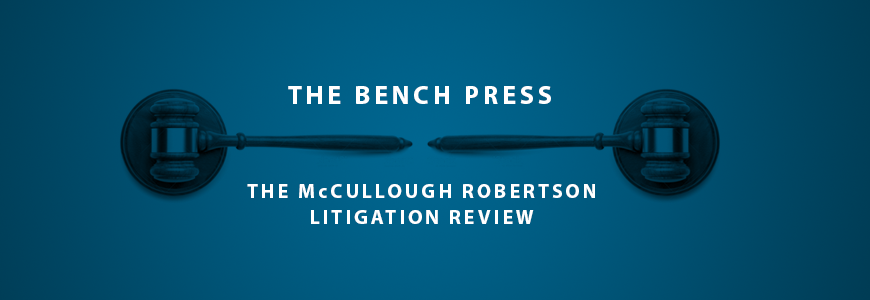In the second post of our legal professional privilege series, we examine instances when such a privilege may be lost by waiver. Waiver of legal professional privilege may be express or implied and, as stated by Justice Kirby in Goldberg v Ng (1994) 33 NSWLR 639, ‘It is simple to destroy the privilege’.
Broadly speaking, waiver of privilege occurs when the party entitled to claim the privilege performs an act which is inconsistent with the maintenance of such privilege. It is the client alone who may waive legal professional privilege. The doctrine of waiver is fairly settled in Australian law however ambiguity can arise when an attempt is made to accurately categorise whether a waiver of legal professional privilege is express or implied.
Thursday 25 June 2015
Thursday 4 June 2015
Give me that document! An overview of legal professional privilege
All information that a lawyer receives from a client is considered to be ‘confidential’. Some of that information is also considered ‘privileged’. Legal professional privilege is an important area of the law and one that frequently surfaces in practice. Over the coming weeks, we will take a closer look at the doctrine of legal professional privilege.
Legal professional privilege covers confidential communications between the lawyer and the client made for the dominant purpose of advice or for use in anticipated or existing litigation. For documents, the privilege only exists in circumstances where they are brought into existence for the dominant purpose of giving advice or for litigation. For example the privilege does not encompass documents that are used to evidence transactions, but does extend to material gathered by the lawyer or client in preparation for litigation, even if that material does not constitute ‘communication’ in the strict sense. The only body that has power to inspect documents for which legal professional privilege is claimed is a court, unless legislation expressly and unambiguously provides otherwise.
Legal professional privilege covers confidential communications between the lawyer and the client made for the dominant purpose of advice or for use in anticipated or existing litigation. For documents, the privilege only exists in circumstances where they are brought into existence for the dominant purpose of giving advice or for litigation. For example the privilege does not encompass documents that are used to evidence transactions, but does extend to material gathered by the lawyer or client in preparation for litigation, even if that material does not constitute ‘communication’ in the strict sense. The only body that has power to inspect documents for which legal professional privilege is claimed is a court, unless legislation expressly and unambiguously provides otherwise.
Subscribe to:
Posts (Atom)
